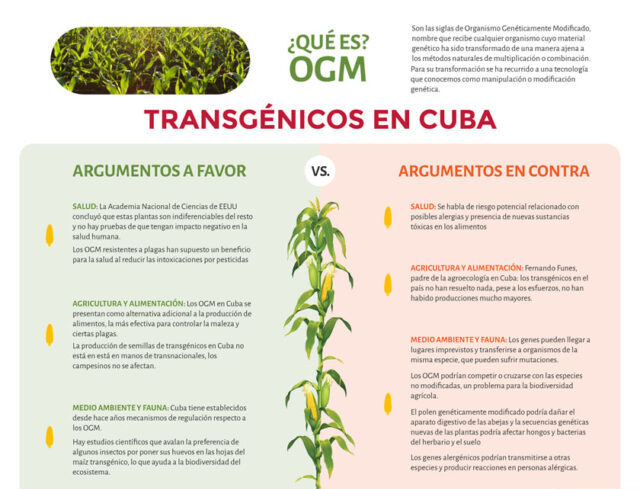 In Cuba’s easternmost province, the introduction of transgenic corn and soybean seeds is being tested in areas of the municipalities of El Salvador and Niceto Pérez.
In Cuba’s easternmost province, the introduction of transgenic corn and soybean seeds is being tested in areas of the municipalities of El Salvador and Niceto Pérez.
Journalist Geovani Ramírez Rojas spoke with Teudys Limeres Jiménez, deputy delegate of the Ministry of Agriculture in Guantánamo, about the program and its objectives.
Cuba has been experimenting with the production of genetically modified foods for several years, with the aim of increasing yield and quality. Scientists have evaluated the main deficiencies of the plantations and are working to eliminate them.
Transgenic soy is currently being produced to make it resistant to a herbicide, as one of the main problems with the crop is that, as it is a bean, it easily gets covered with grass, and during harvesting, the machine becomes tangled, the pods fall, and yield decreases.
Specialists propose that these foods be used specifically for animal feed production, which would greatly help replace imports of these grains.
The transgenic corn program carried out in Cuba is aimed at solving two fundamental problems in the fields: one of them is weeds, which, due to the tropical climate of Cuba, grow more vigorously and feed on soil nutrients. Therefore, the corn will be smaller and produce less.
Transgenic corn is resistant to the internationally approved herbicide Finale, which is not harmful to human or animal health, has no impact on the environment, and thus allows for effective weed control.
In the Caribbean nation, corn productivity is very low (around two tons per hectare), making it more feasible to import it.